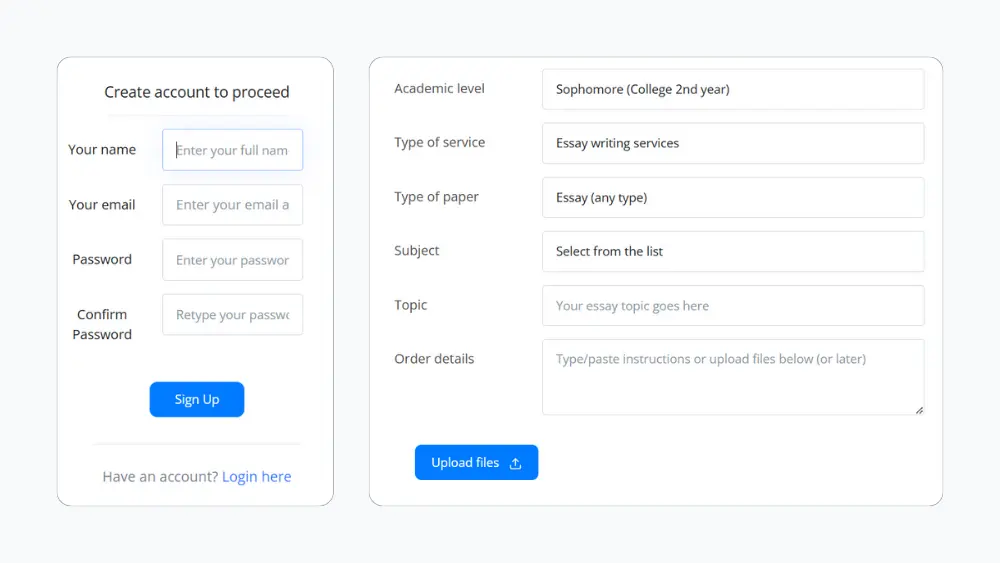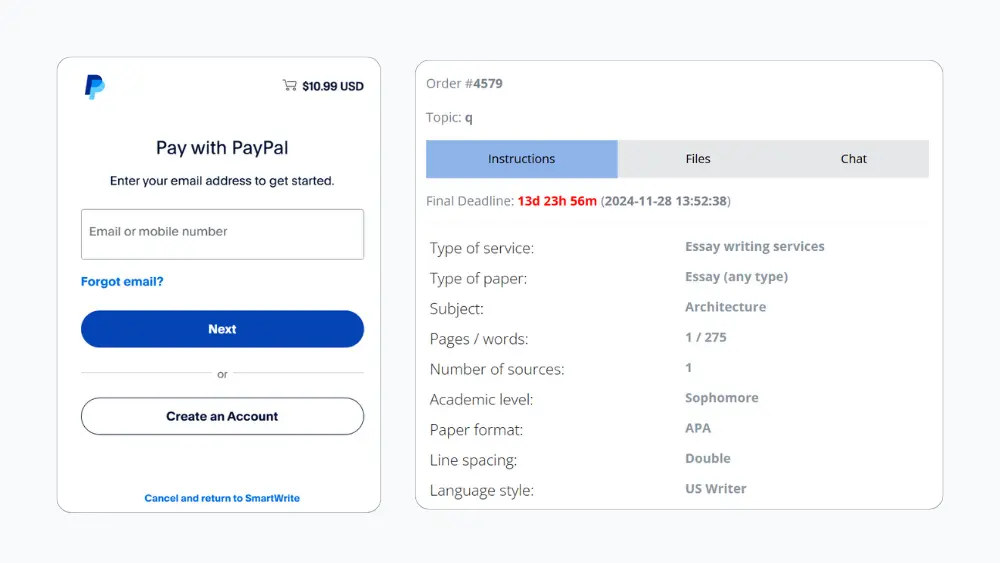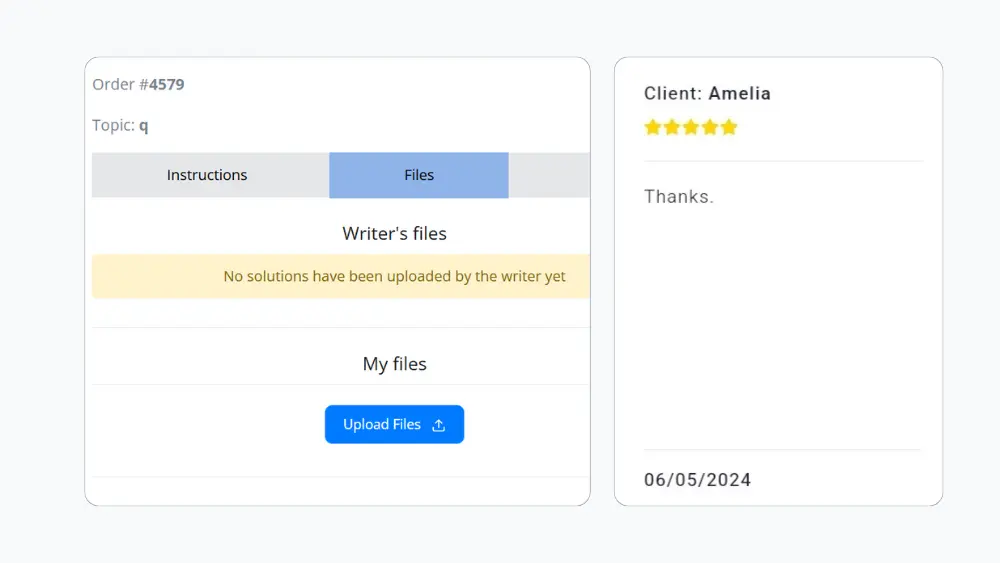Best online coursework writing help
Struggling with any coursework? Welcome to SmartWrite, a writing website that helps college students write, edit and proofread their academic papers, and turn them in on time.
So, if you’re looking for someone to write a psychology paper for you or a nursing reflective report or portfolio, you’re in the right place. We’ll help you write a paper in any discipline.
Our team helps students turn their writing challenges into success stories. They quality work in any subject, written strictly per your instructions and preferences.
We have 100+ experts who have been in the industry long enough to understand not just how coursework should be written but also what your teacher will be looking for.
Whether you’re working on a tight deadline or need in-depth research, we’re here to offer you exceptional, plagiarism-free work that exceeds your expectations.
Don’t let your workload overwhelm you; we’re here to help. Unlock your academic potential with our well-trained writers, and use their samples to boost your writing skills.
Besides, we understand how important coursework is to you and how significant it is to your final grade. That’s why we deliver quality papers that are customized just for you.
If you feel overwhelmed and need professional help, we’re the best website to turn to. We’ll assign your orders to experienced writers in line with your specialization.
Not to mention that we have a highly trained quality assurance team that ensures your paper is of acceptable standards. Our company has a customer satisfaction score of over 97%.
So, regardless of your discipline, academic level or location, we’re here to help you write any assignment, from case studies and reports to discussion posts and annotated bibliographies.
We guarantee that your papers will meet all the instructions and align with the highest academic standards. All our products are custom-made from scratch, with zero traces of AI content.
Why hire our coursework helpers?
Thousands of students trust our writers for many reasons, among them being their dedication to offering top-quality solutions across all disciplines and attention to detail.
Our team includes Master's and PhD experts who are well-qualified and experienced in diverse fields. Regardless of how urgent your project is, be assured we’ll be able to help.
Other benefits of using our coursework writing help include:
-
Custom solutions: SmartWrite delivers outstanding papers every time. That’s why all our papers are written from scratch and run through multiple plagiarism and AI checking tools like Turnitin to ensure they are original and human-written.
-
Affordability: We’re indeed the best company to run to whenever you want to hire someone to do your homework for you, without compromising on quality. With as low as $8 per page, you can buy a 100% original coursework in any subject.
-
Adherence to instructions: Our writers follow your professor’s guidelines and your own preferences and writing style. They follow the basic academic writing guidelines to ensure your writing is of the highest standard.
-
Timely delivery: Is your deadline near, and yet you’re stuck? No more panic attacks – our experts are experienced in writing papers fast, with 100% efficiency. We have a record of not failing a single deadline – and we intend to keep our services this efficient.
-
24/7 support: Maintaining smooth communication is a key aspect of our service delivery. You can contact us via email or live chat for instant chat with our support team.
-
Flexible revision: We promise limitless revisions until you’re 100% satisfied. Our goal is to address all your academic writing needs, including editing and proofreading.
So, regardless of how complex you think your case study is or how soon you want your annotated bibliography service written, we’re here to offer you the best writing services.
How much does buying coursework cost?
The cost of buying any coursework at SmartWrite starts from USD 8 per page (275 words) for us to write your paper from scratch and USD 5 for editing and proofreading services.
Use our online calculator to calculate the total cost, which depends on:
-
Academic level: Writing a high-school paper is nothing compared to a doctoral one. While all assignments are important, the latter needs more time and experience.
-
Type of service: Some tasks, like writing a paper from scratch or doing a quantitative analysis, are more demanding and costlier than proofreading or editing.
-
Urgency: The more urgent the coursework is, the higher the cost you will pay. So, when applicable, give us time to work on your paper and save some money.
-
Volume – Of course, the more pages you need, the higher the cost. A single-spaced page has 550 words and is twice as costly as a double-spaced page with 275 words.








